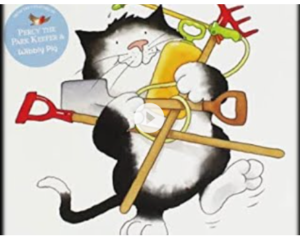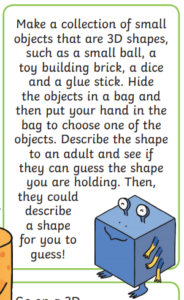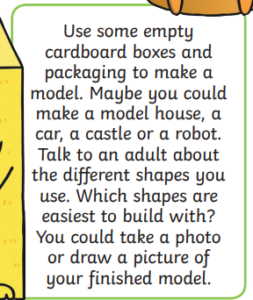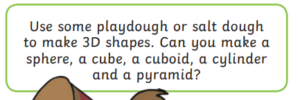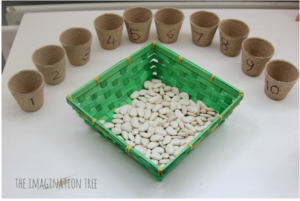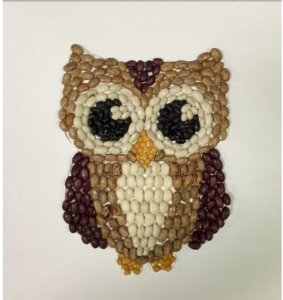Week beginning 01.03.2021: Home learning
Monday
| Book of the week- Click here to watch the story Jasper’s Beanstalk or read the book if you have it at home.
Questions to discuss- 1. What do you think will be at the top of the beanstalk? 2. What different tools did Jasper use? 3. What plant have you got growing in your garden? 4. Do plants change during different seasons? 5. Do you know any other stories about beanstalks? |
|
| Phonics- ur
Click here to watch today’s phonics video. parents: For the final activity on the video, there are two possible sentences ‘See the cat lick his black fur.’ or ‘See the black cat lick his fur.’ Activity 1: Look at the picture. What can you see?
Write a word or sentence about the picture. (Sentence – He hurt his leg. Word – hurt.) |
|
| Maths- 3D shape
Click here to be taken to today’s video. Choose session 1. Today’s activity:
|
|
| Tuesday
Phonics- ow Click here to watch today’s phonics video. Click here to hear the jolly phonics song for ow (at 10:38 in the video) Activity 1: Write words containing the ow sound (examples – cow, brown, now, owl and howl) Place them on the floor or around the room. Say a word for your child to find. Activity 2: Click here for a Read and Roll – ow |
|
| Maths- 3D Shapes
Click here to be taken to today’s video. Choose session 2. Today’s activity:
|
|
| Wednesday
Phonics- oi Click here to watch today’s phonics video. Click here to hear the jolly phonics song for oi (at 10:52 in the video) Activity 1: Write the words; coin, foil, oil, boing Parents: read aloud for your child to write. ***challenge*** write your own sentence, using one of the words you have written. Activity 2: Click here to have a go at this oi word search. Either search on screen, or print it off (we recommend using page 1) Here are this week’s words. |
|
| Maths- 3D shape
Look at today’s video. Choose session 3. Today’s activity:
|
|
| Thursday
Phonics- Tricky word – her Click here to watch today’s phonics video. Activity 1: Tricky Word Lucky Dip Activity 2: Practise spelling the tricky words in flour or salt. Activity 3: Play a game of phase 3 tricky word snakes and ladders. Click here to download and play. If you do not have a printer, write down on a piece of paper each number you land on and follow on screen with your finger. You will need dice to play. Parents: If your child lands on a word we have not yet covered in class, you can support them by reading the word. |
|
| Maths- Capacity
Click here to be taken to today’s video. Today’s video is all about Capacity (the amount something can hold) and the language we use to describe capacity. Activity: Take pictures of the different measurements, when exploring the capacity of a container. It could be the stages of running a bath, filling a bucket or drinking a drink for example. Which words did you use to describe each measurement? Today is World Book Day! We have been thinking about our favourite books. Click here to listen to Mrs Burgess’s favourite book. Click here to listen to Miss Gaunt’s favourite book. Mrs Burke couldn’t decide between her all time favourite and a newer favourite so she chose two! What is your favourite book? Draw a picture and let us know. |
|
| Friday
Understanding the World with Professor Myers; British Science Week 2021- Structures Click here to watch this week’s video with Professor Myers. -Can you make a structure strong enough to support a toy? -Have a go at one of the experiments in the activity pack. -Send photos to show what you did. https://www.britishscienceweek.org/app/uploads/2021/01/BSQ_BSW_PACKS_1120_EY_v14.pdf
https://www.britishscienceweek.org/app/uploads/2020/01/BSA_BSW_EarlyYears_1119v6.pdf
https://www.britishscienceweek.org/app/uploads/2019/02/BSA_sciweek_pack_earlystages_0119v2.pdf
https://www.britishscienceweek.org/app/uploads/2020/03/Early-Years-2017-BSW-Pack.pdf
|
|
| Story time- Jack and the Beanstalk read by Mrs Burgess Mad about Minibeasts read by Mrs Burke Don’t forget to join your Zoom session this week! For this week’s Bingo session, you will need:paper and something to write with. Story Link activities to select throughout the week Literacy
Understanding the World 1.Take a walk outside or in your garden. What can you find growing? You could take a pen and paper to draw what you find. Maths Use boxes, bottles, tins or anything else around your house to measure them. Talk about size difference – who is the tallest? How tall are they?
Expressive Arts and Design
Physical Development
|
Measuring
This week we have been learning about length and height and comparing objects using the language shorter than, longer than and taller than.
Here are some examples of the fantastic learning at home and at school.
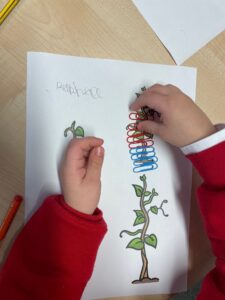
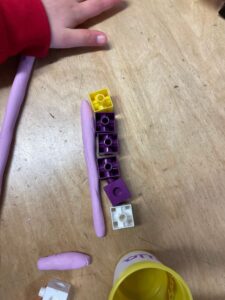
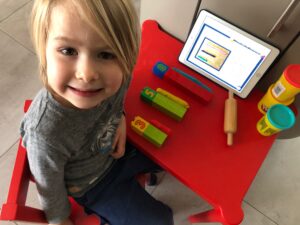

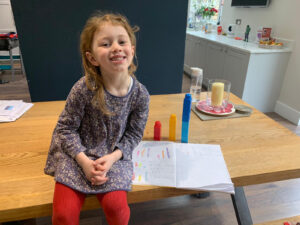
Home Learning Heroes
Thanks for sending in the amazing home learning you’ve been doing.
Here are some highlights!
It’s great to draw and be mindful like Noah…
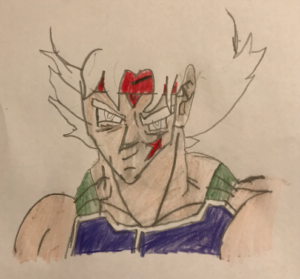
Take a look at this incredible report written by Daisy…

and Albie!
I was thrilled to receive this email about Safiya-Mishal’s arithmetic score! I was so proud of her, too.

And, finally, check out this brilliant poster about renewable and non-renewable energy by Phoebe. I love how clear and interesting it is plus I love the choices she made like green text vs red for positive vs negative.
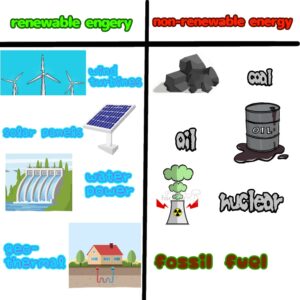
We’re nearly at the end of home learning – we can do it!
As always, send me an email if you need any help or if you’d like to celebrate your learning.
Keep it up, Y6.
Week beginning 22 February 2021: Home learning
Here is your learning for the first week of next half term.
Have a lovely half-term- relax, stay safe and healthy and have fun!
| Monday
|
Book of the week- Click here to watch the story What the Ladybird Heard by Julia Donaldson, or read the book if you have it at home.
To discuss-
|
|||
| Phonics- oo
Click here to watch today’s phonics video. Click here to hear the jolly phonics song for oo. Activity 1: Sorting oo- Oo is super tricky. Not only do we have to identify the sound but we also have to decide whether the short or long version fits the word. Have a go at sorting these pictures onto the ‘short sound’ or ‘long sound’ grids. Click here for the card sorting activity. Parents: If unsure of the words the picture cards represent, click here for the answers. If you do not have a printer at home, you could draw a simple table like this:
Draw pictures of objects that have the long/short oo in the correct column of the table. Activity 2: In our phonics lessons, we like to play a game called Please Mr. Crocodile. Have a go at this at home using our new phase 3 sounds qu, ch, sh, th, ng, ai, ee, igh, oa, oo Here are the rules: 1. Write out the sounds on pieces of paper (or print them/ use flashcards if you have them) Lay them out on the floor. 2. Use a piece of blue material to represent ‘The River’ 3. Child asks “Please Mr. Crocodile, can I cross your river?” Adult (crocodile) replies “Only if you give me the sound…” and asks the child to select the correct sound. Will they find the correct sounds and be allowed to cross the river? Don’t forget to send in pictures of you playing at home! |
||||
| Maths- White Rose Maths: Growing 6, 7, 8!- Week 3.
Click here to be taken to the correct web page. Choose Session 1- Comparing Height Activity: Click here for today’s activity. If you do not have building blocks or cubes, you can use other objects of the same shape and size. Perhaps you could use tins from the food cupboard, for example. |
||||
| Tuesday | Phonics- ar
Click here to watch today’s phonics video. Click here to hear the jolly phonics song for ar. Activity 1: Sentence writing-describe the picture.
Write a word or sentence about the picture. I can see goats in the farmyard. Remember to use a capital letter, finger spaces and a full stop. Activity 2: Challenge yourself with the phonics bloom flashcard time trial- how many can -you get correct in one minute? You will need an adult to click the tick or the cross. Click here Please select phase 3 and deselect set 11 (the children have not covered some of these sounds yet) There is an option to play again using incorrect or missing sounds- great for recapping those sounds to work on! |
|||
| Maths- White Rose Maths: Growing 6, 7, 8!- Week 3.
Click here to be taken to the correct web page. Choose Session 2- Comparing Length Activity: Click here for today’s activity. If you do not have playdough, you could measure string, toys or any other household objects. |
||||
| Wednesday | Phonics- or
Click here to watch today’s phonics video. Click here to hear the jolly phonics song for (ee)or. Activity 1: Complete the video activity- writing a sentence/ silly sentence using the pictures. Activity 2: Read and match the captions to the correct picture. You can print these or read them on screen. Click here Click here for this week’s words. |
|||
| Maths- White Rose Maths: Growing 6, 7, 8!- Week 3.
Click here to be taken to the correct web page. Choose Session 4- Measuring Height Activity: Click here for the activity. You will notice that this is a bit of a long term activity, involving planting a seed. If you are able to do this, please do, otherwise keep practising measuring the height of household items, using smaller items you have (remember, the measuring unit objects need to be the same shape and size) |
||||
| Thursday | Phonics- Tricky word – they
Click here to watch today’s phonics video. Activity 1: Tricky word colouring sheets!- Click here and click here Activity 2: Tricky word spotter story- click here click here to find a link to a website blog post, that has some fantastic tricky word activity ideas. Pick your favourite ideas and have a go! We particularly like the look of ‘Tricky word hang-man’ and sticking tricky words to pots and pans that you can hit when you hear the word! Musical words! ☺ |
|||
| Maths- White Rose Maths: Growing 6, 7, 8!- Week 3.
Click here to be taken to the correct web page. Choose Session 5- Measuring Time Activity: Click here for today’s activity. |
||||
| Friday | Understanding the World with Professor Myers; The importance of snot!
Click here to watch this week’s video with Professor Myers. -Can you make your own snot experiment at home using the ingredients? Send in a photo. -Make a snot superhero poster to tell everyone how snot helps to protect us from getting poorly. Handwriting Let’s learn the long ladder letters; t, l, b |
|||
| Story time- The Bad Tempered Ladybird with Mrs Burke
Jack and the beanstalk with Mrs Burgess
|
Don’t forget to join your Zoom session this week!
Wiggle and write!
For this week’s session, you will need: something to write with a large crayon, pencil or paint brush, a large piece of paper, an easel, a scarf or a wand!
Story Link activities to select throughout the week
Literacy
- What the Ladybird Heard features a map of the farm. Can you create your own map of a farm and use your phonic skills to add words naming the different features and animals?
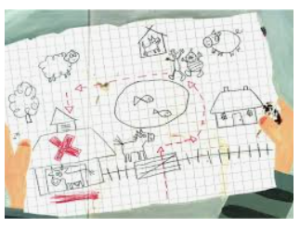
- The Ladybird was very brave and smart to come up with a plan and use her voice to warn the other animals. Can you design a certificate of bravery to award to ladybird?
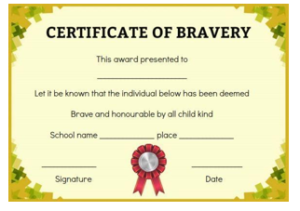
A writing reminder…
How did your child find the writing activity? Remember, it’s okay for things to be spelt phonetically. It is important that your child grows into an independent learner. Encouraging your child to write the words as they sound rather than always spelling them correctly. We encourage the children to use their own skills, rather than copying an adult.
Understanding the World
Spring Time; Animals and their babies-
Happy Days! Winter is over and it is now the season of SPRING. Do you know what happens in the season of Spring? Have a chat with your grown up…
In Spring, many baby animals are born. Do you know the name of baby animals? Let’s have a think about the animals in our story What the Ladybird Heard.
Cow, pig, horse, duck, dog, cat

- First, you could have a go at this ‘What can you see’ video. Click here Which baby animals can you name?
- Be super researchers- if you don’t know them already, find the names of the remaining baby animals from our story; pig, horse, dog, cat. We speak lots in class about where we can find information, so be sure to tell us where you found your animal facts!
Expressive Arts and Design
- This week’s story takes place on a farm. What animal noises would you hear on a farm? Listen to this song by this week’s author Julia Donaldson click here See if you can sing along. You might even want to add your own animal movements and dance along too!
2.We’d love to see farmyard animal or ladybird pictures and crafts- use any resources you have! Don’t forget to send us a photo. Here are some ideas:

Physical Development
- One of our favourite activities! This week, have a go at ‘On the Farm’ Cosmic Yoga.
Yoga Time! | On The Farm | Cosmic Kids – YouTube
- Draw some lines of different patterns on pieces of paper and follow the lines using small objects such as cereal hoops, paperclips or buttons.
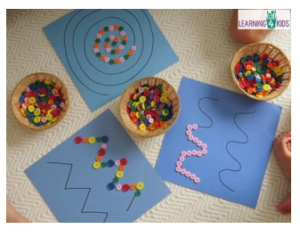
Home Learning Heroes!
Hi everyone! It’s the end of our first half term of 2021. I can’t believe how quickly it’s flown by!
Scroll down to see these excellent pieces of Y3 home learning from this week.
Come back on the first Friday after half term to check out some of the work Y3 have been doing that week at home.
Some beautifully presented spelling and vocabulary learning by Hafsa
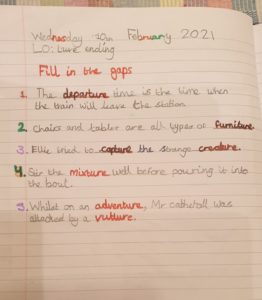
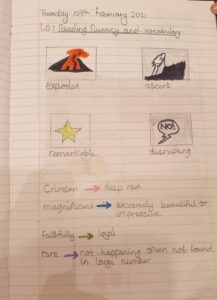
A piece of work accurately using conjunctions as openers by Saif
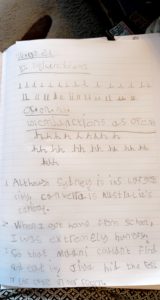
Some wonderful work using possessive apostrophes by Penelope
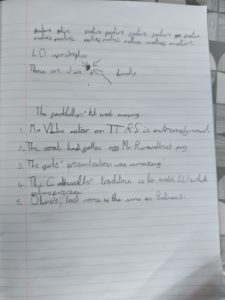
Some very useful corrections of must dos by Kian – well spotted!
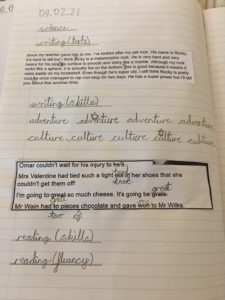
A marvellous mould fossil has been made here!

A wonderful superhero drawing and accompanying mask by Amelia

Another marvellous mould fossil!
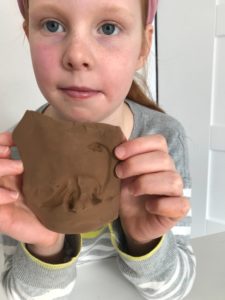
Some beautiful handwriting on show here whilst practising her spellings by Evie
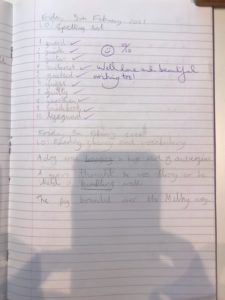
Some great learning this week and it’s lovely seeing so many of you on the daily Zoom sessions with such enthusiasm about our learning. Keep it up!
Please keep sending your home learning to me: oliwain@spherefederation.org
Mr Wain
Happy half-term!
Happy half-term, everyone. I have been so impressed with all your learning both at home and at school. Have a lovely week, stay safe and keep healthy!
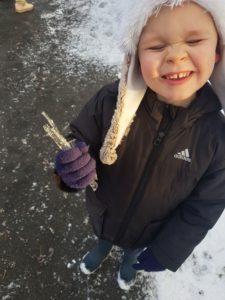
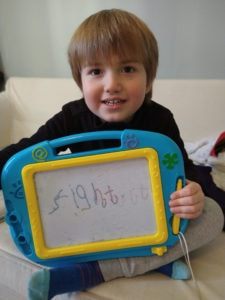
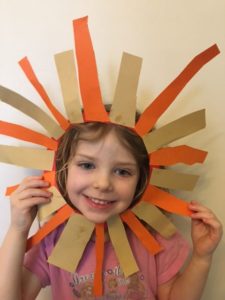
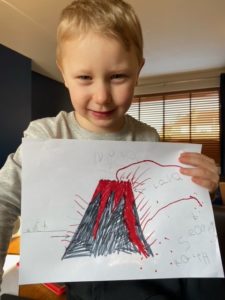
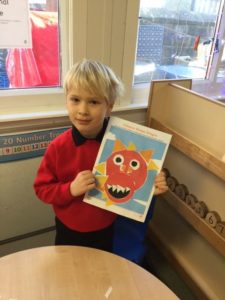
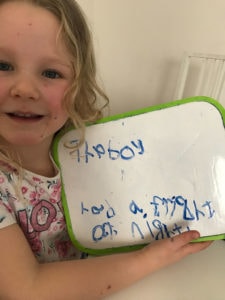
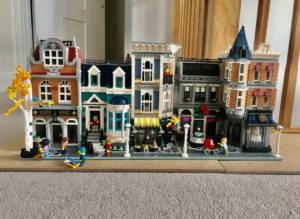
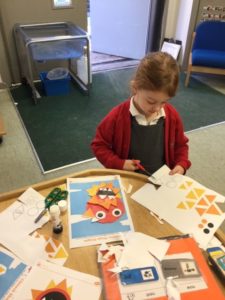
Home learning superstars
Well done Year 2 for continuing to work so hard at home. You’ve done an amazing job this half term and you deserve a well earned rest.
Thank you to those who continue to send me their learning.
Take a look at some the great examples of learning that have been sent.
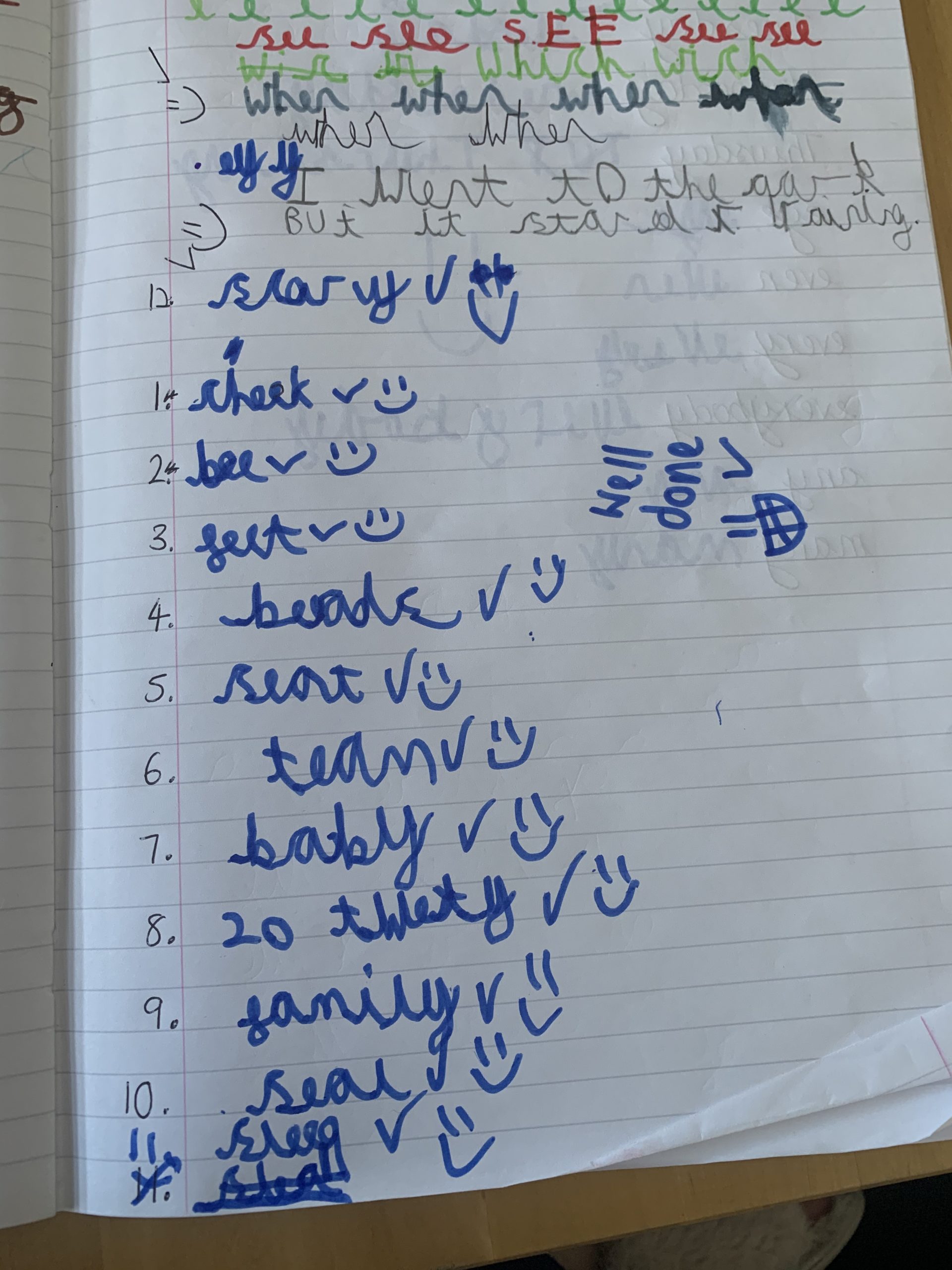
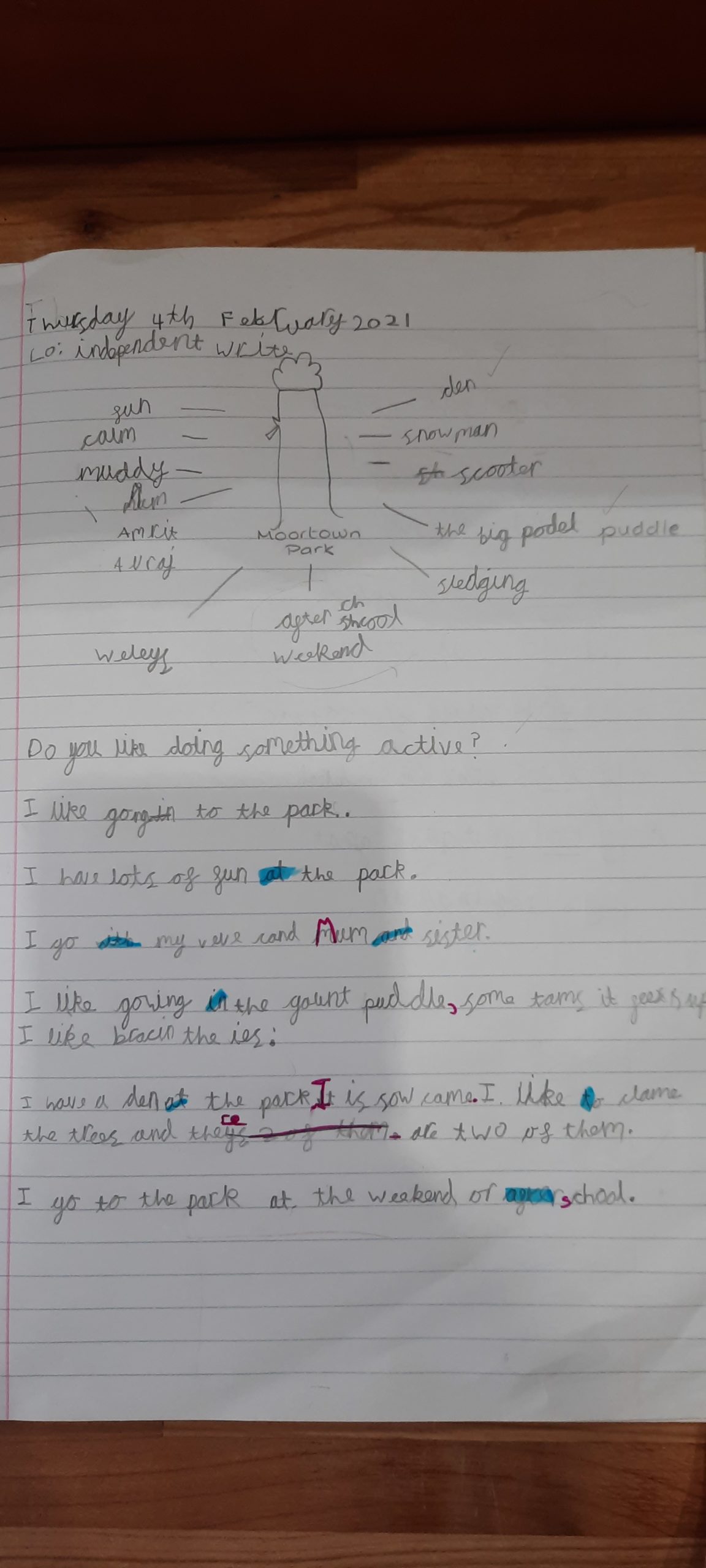
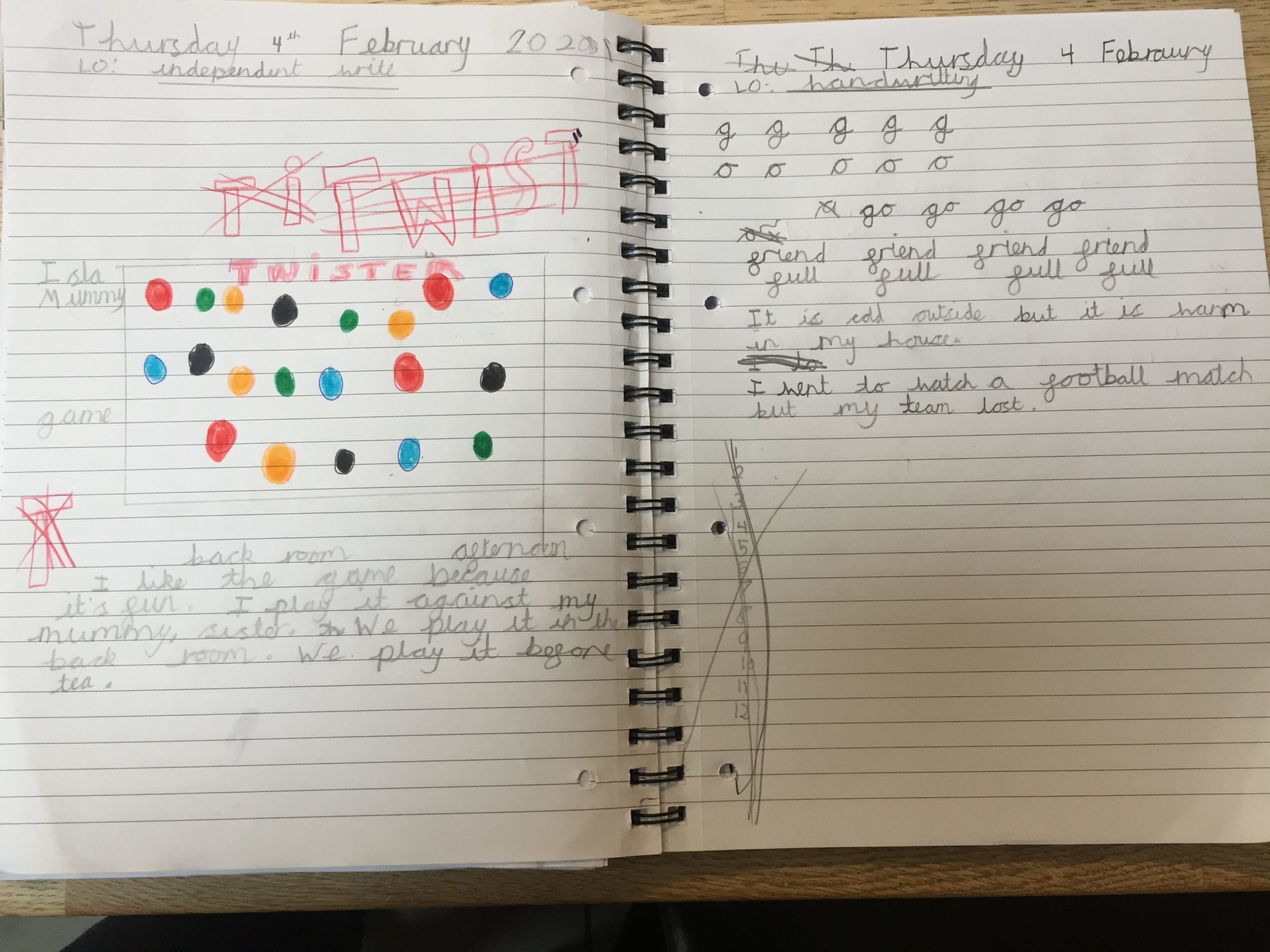
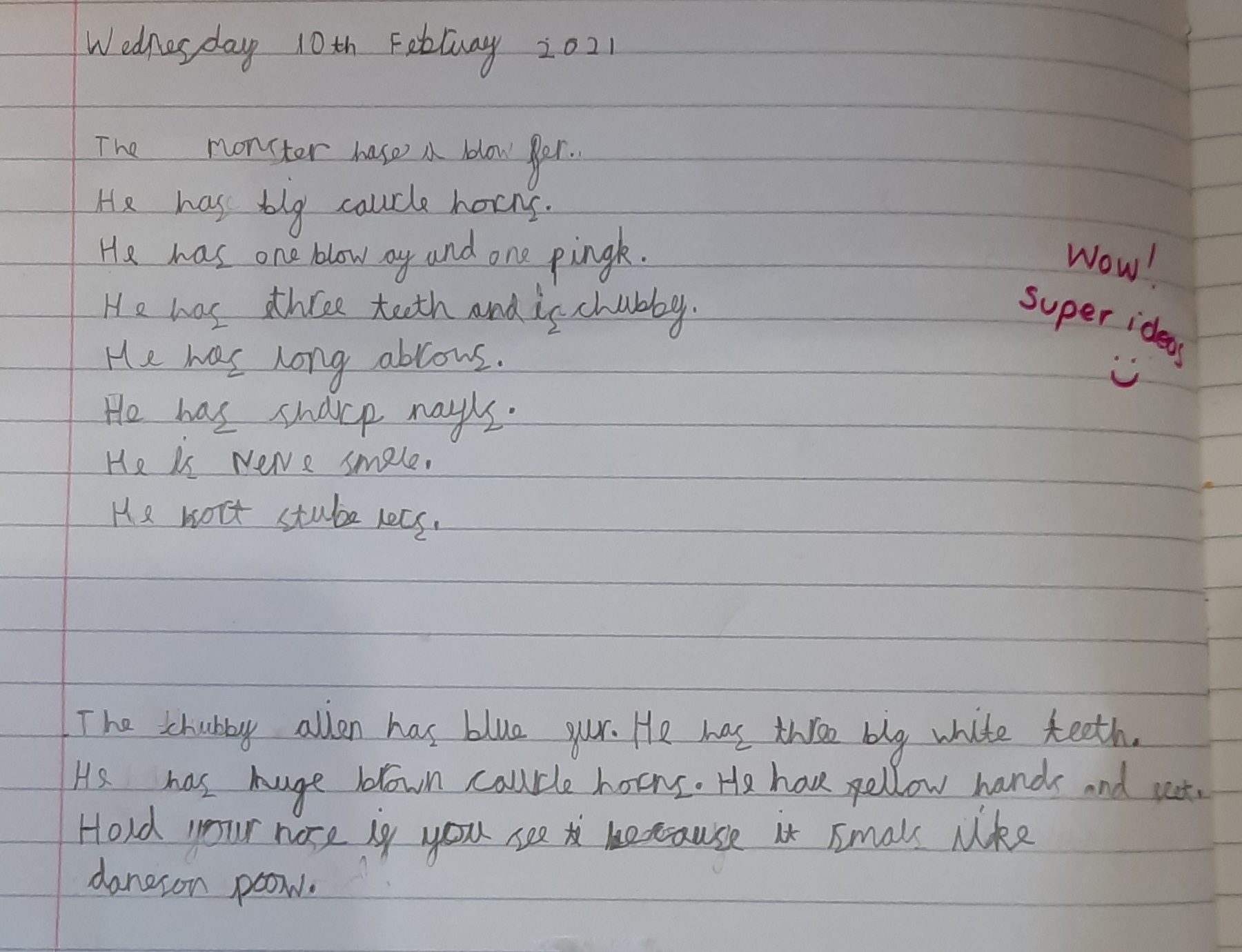
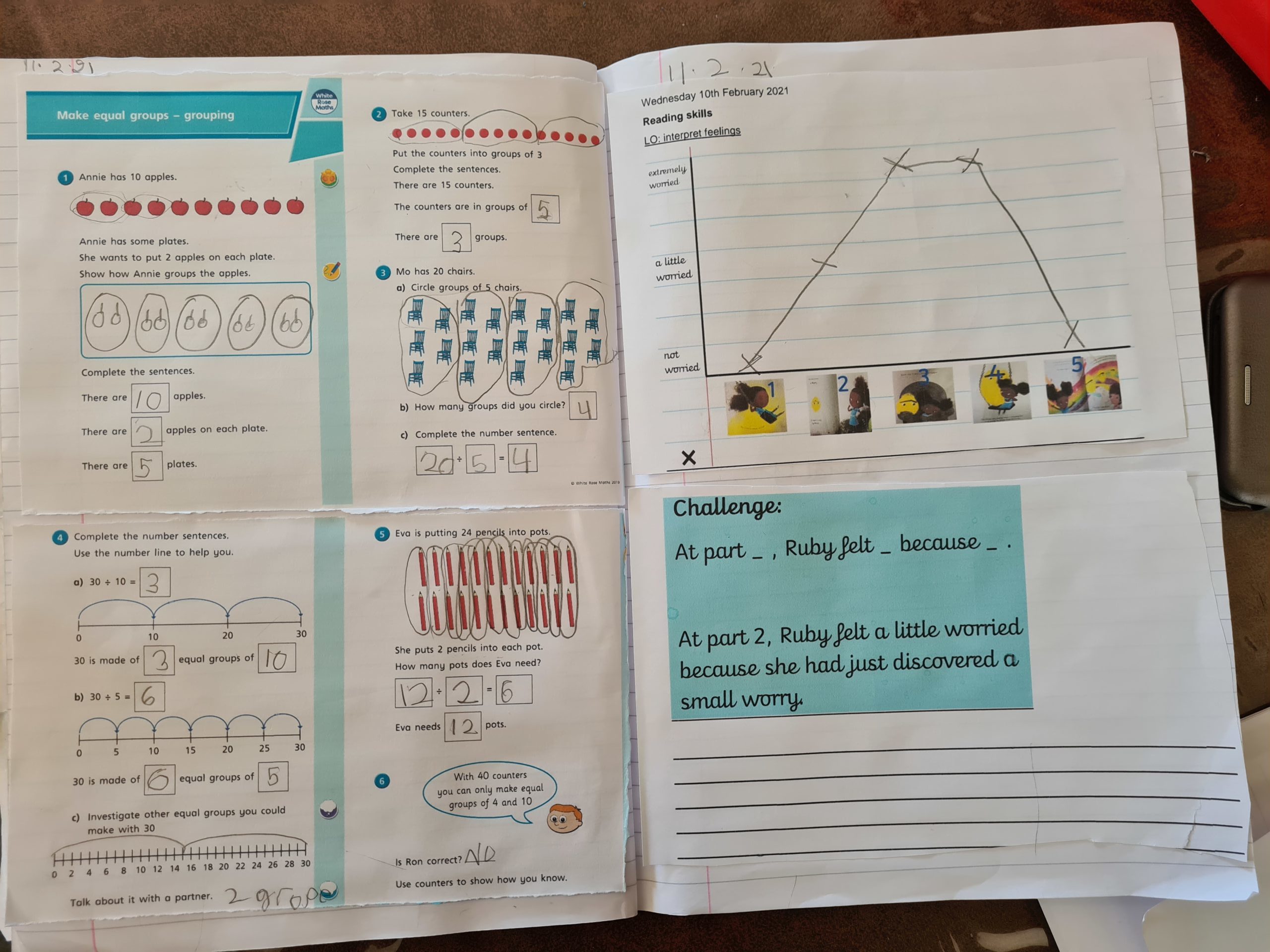
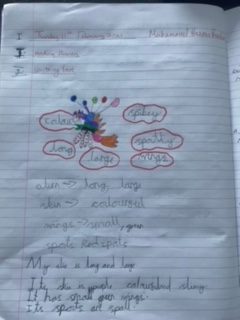
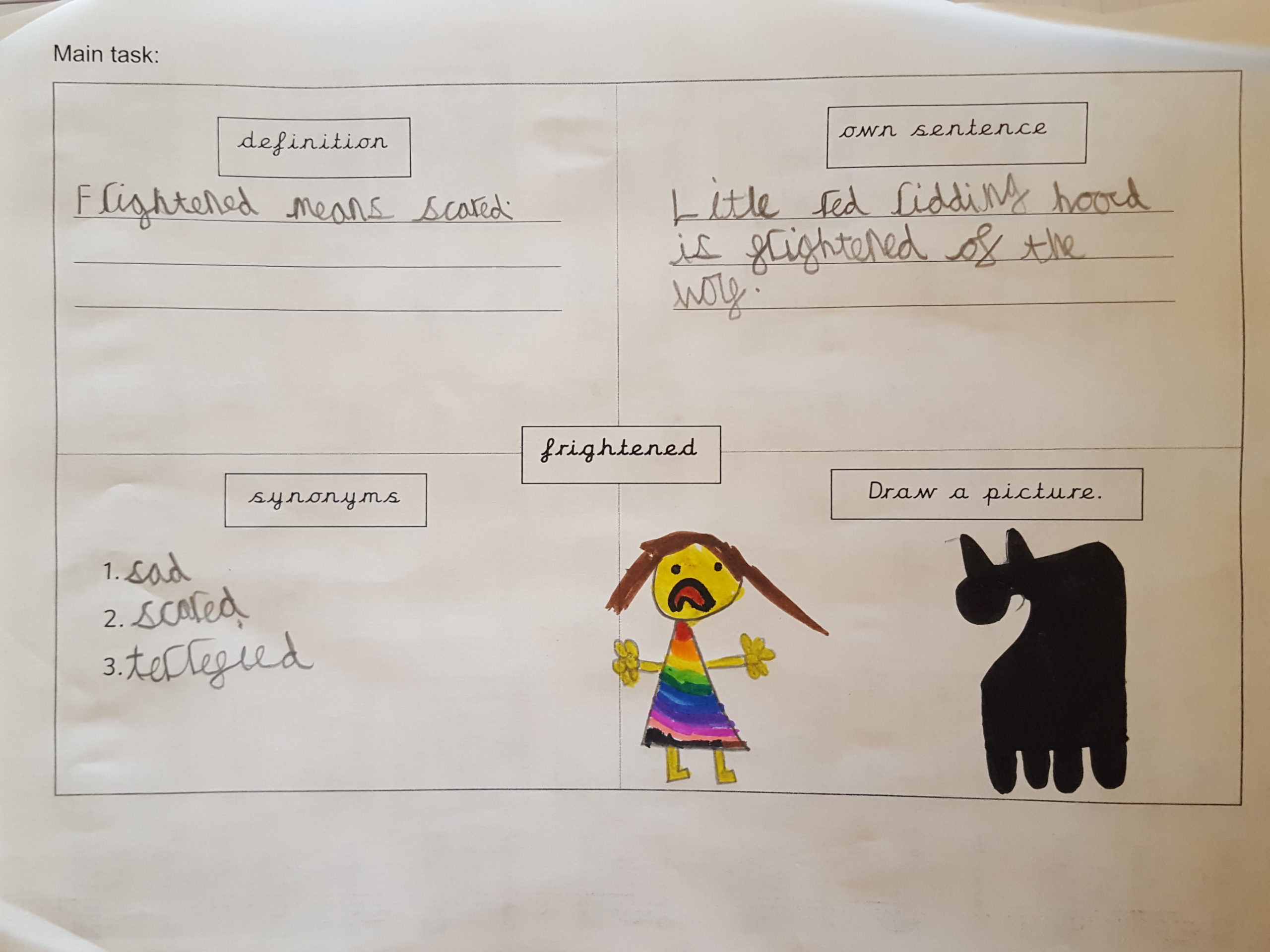
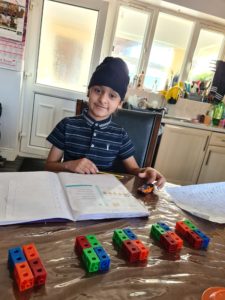
Have a wonderful half term Year 2!
End of unit quizzes
Have a go at our quizzes to see what you can remember from the Science and Geography learning this half term.
Wonderful writing!
From Mr Gathercole, who leads the Y1,2 home learning writing sessions…
Hello writers,
I’ve been absolutely blown away by the amazing writing that’s been sent in to us recently. Teachers always enjoy reading your work so keep sending those emails.
Whether it be writing about fairytales or poetry about aliens, you’ve produced great writing. We’re so proud of everyone for all of their hard work. You should be very proud, too!
First up, we see some brilliant re-telling of a classic fairy tale. Can you pick out words from each that you really like and are going to use in your writing?
Our first piece comes from Moortown. What great editing and improvements to what was already a great piece of writing! Now it’s even better.

This next entry comes from a writer at St James’ CE. Lots of great adjectives have been used. This wolf sounds a bit mischievous to me.


Back to Moortown for another great tale. When you read this, how do you know it is probably a fairy tale?

Next, we’ve some poetry based on the poem, Aliens Stole My Underpants by Brian Moses. It turns out that the aliens stole more than just underpants! Here’s what a couple of Scholes writers had to say on the matter.


Olivia wrote this great letter after our prime minister got in touch with us. Here’s a link to that message in case you missed it.

It sounds like this super learner at St James’ CE does a lot to keep positive during lockdown. It sounds like you’re doing a lot to have a healthy body and mind.

This writer at Scholes is spending lots time outside. There is so much detail that we can easily picture what you do to stay happy and healthy.

We may not be at school but these learners have all remembered to take pride in their presentation. To everyone at Scholes, Moortown and St James’ CE, keep being amazing.
Super Learners
I really enjoyed our Zoom nursery rhyme sing-alongs this week. Don’t forget our dough disco Zooms- get ready to boogie!
Here is some of our learning from last week.

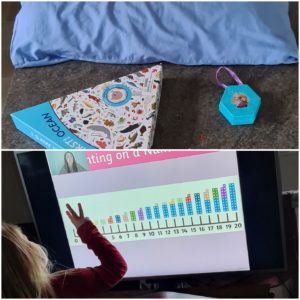
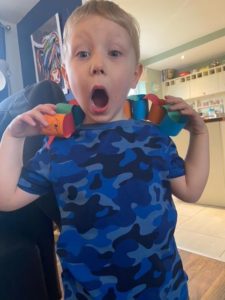

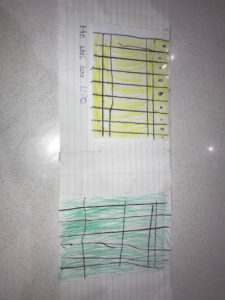
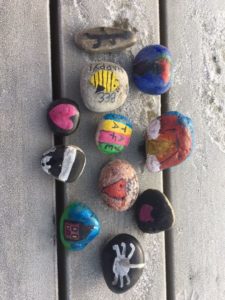
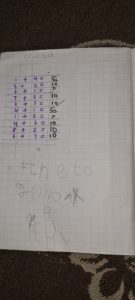
Have a great week and keep sending me your learning.
moortowneyfs@spherefederation.org
